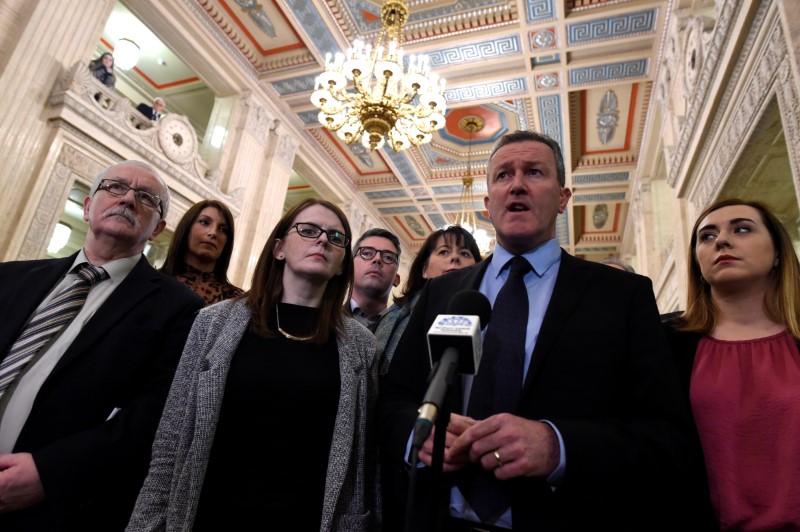BELFAST (Reuters) - Northern Ireland should hold new elections if parties fail to reach agreement on forming a new government by a deadline next week, a senior member of Irish nationalist party Sinn Fein said on Friday, after a week of talks he said brought little progress.
New elections would leave the British province without a government for two more months during Britain's crucial talks to exit the European Union, and would give Sinn Fein a chance to become the largest party in Northern Ireland for the first time.
"The legislation is very clear: if there isn't an agreement we need to go to an election," said Conor Murphy, speaking to journalists on behalf of Sinn Fein's negotiating team.
Northern Ireland has been in a political crisis since Sinn Fein pulled out of government in January, sparking a March 2 election that ended the majority which the pro-British unionists had enjoyed in the province for almost a century.
Sinn Fein shocked many observers by getting very close to becoming the largest party in what would be a dramatic transformation of the province's politics.
The British government last week extended a deadline until April 18 for Sinn Fein to reach agreement with pro-British rivals the Democratic Unionist Party (DUP).
It said it would then begin to return some devolved powers to the British parliament in London for the first time in a decade, a move Sinn Fein opposes.
Secretary of State for Northern Ireland James Brokenshire said there was no appetite for a new election.
In the talks, Sinn Fein is demanding legal rights for Irish speakers, the legalisation of gay marriage and official inquiries into historic crimes.
The DUP has said Sinn Fein is asking for too much because it wants the talks to fail.
But Murphy said the DUP and the British government were failing to appreciate the change in the political landscape created by the March 2 election.
"The mandate that was given to us all in the last election .. brought about a step change here," he said. "Apart from the DUP and the British government, everybody else gets that."

The political crisis threatens to further increase sectarian tensions, but nobody is predicting a return to the kind of violence that killed 3,600 in fighting involving Irish nationalists seeking a united Ireland and unionists who want Northern Ireland to remain British.